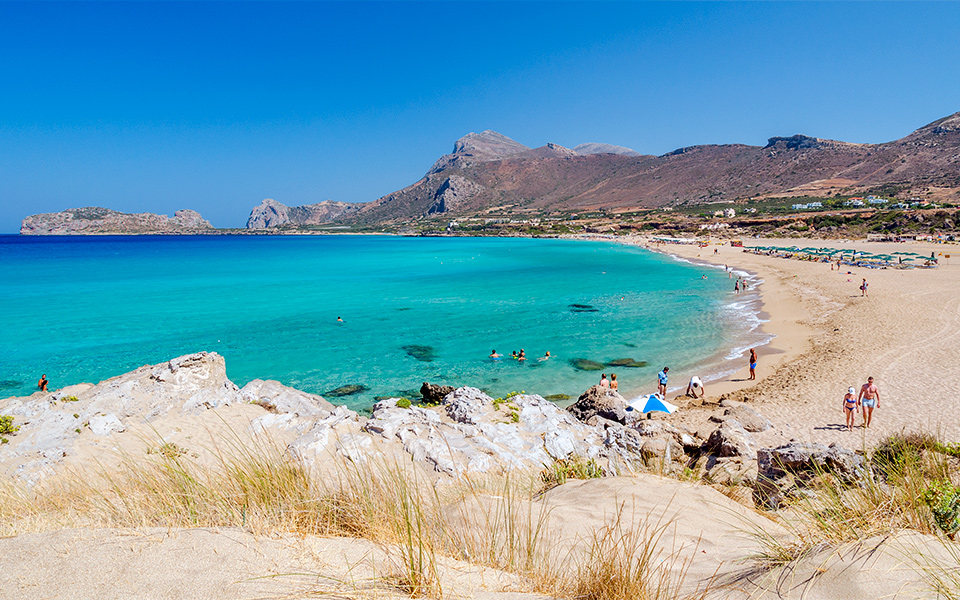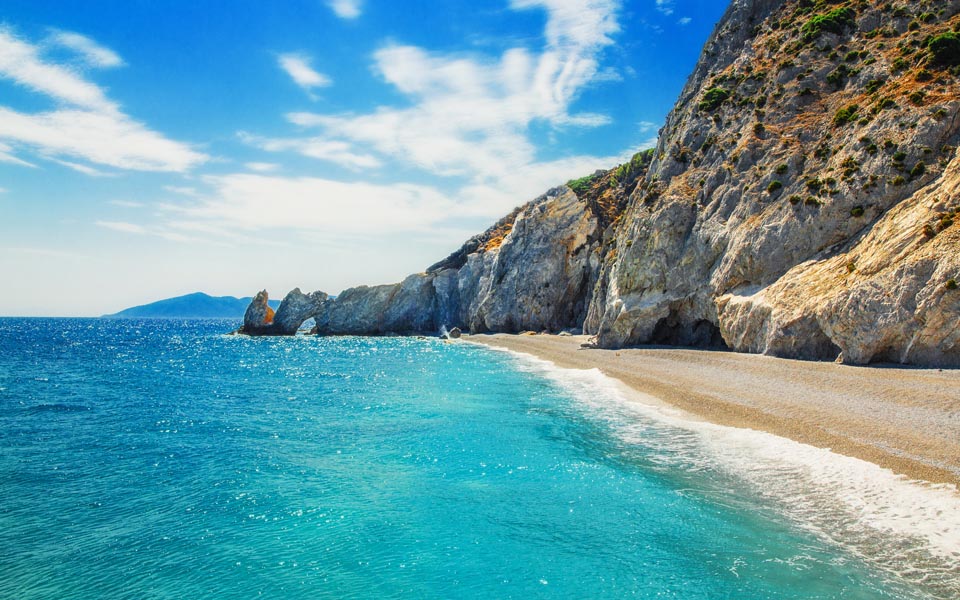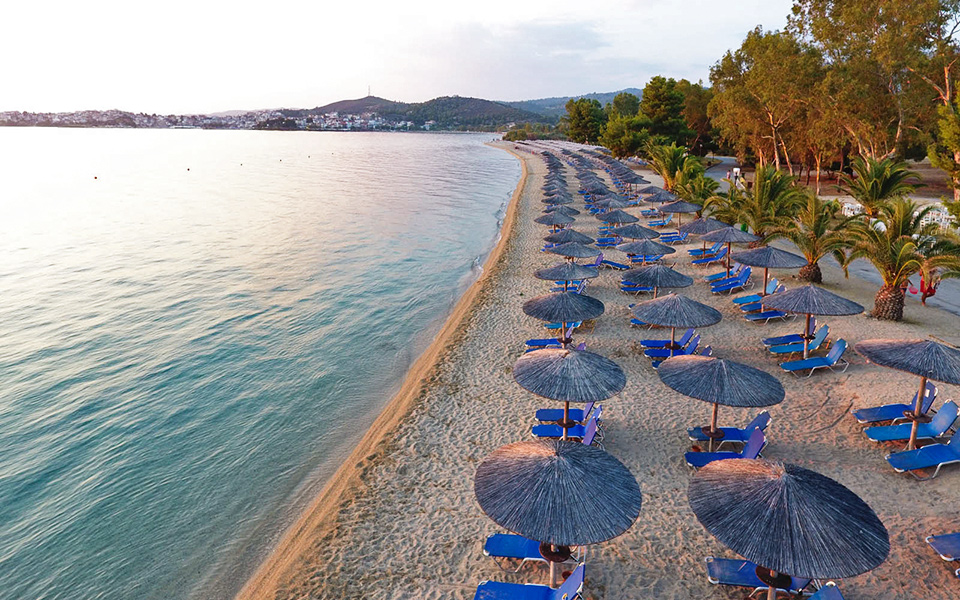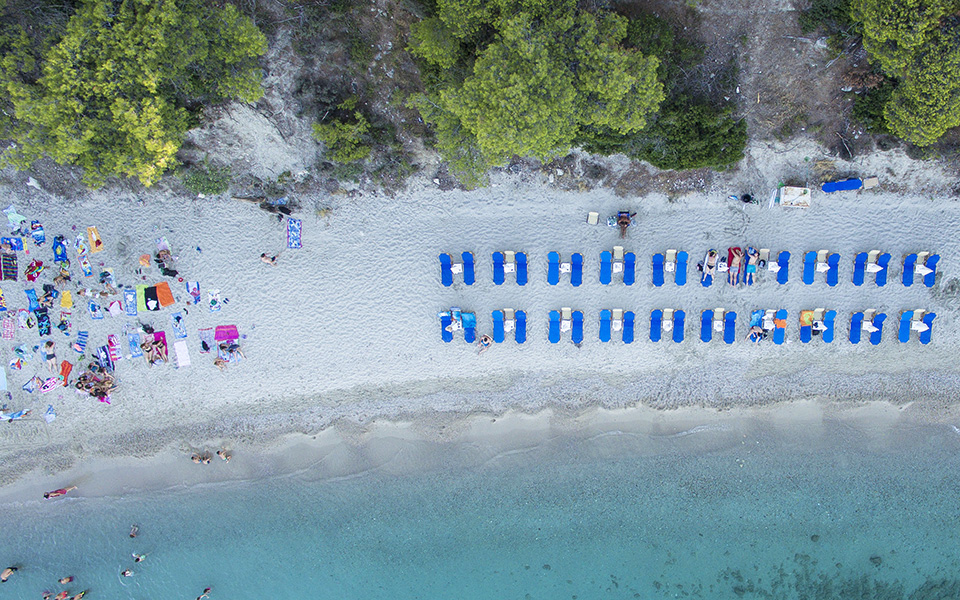Greece’s great beach “champion” this year is once again Halkidiki, followed by Rhodes and Lasithi, while the municipality with the most Blue Flags this year is again the municipality of Rhodes with 55 of the best beaches. The Hellenic Society for the Protection of Nature has announced the results that have once again placed Greece in a globally leading position, not only for the cleanliness of beaches and seas but also for the organisation of coasts. More specifically, 581 beaches (compared to 545 last year), 15 marinas and 6 tourist boats (a category added in 2017) were awarded the Blue Flag this year.

© Shutterstock
Blue Flags are awarded to beaches based on a long list of criteria, including the cleanliness the water, but also services such as restrooms, first aid equipment and disabled-friendly access as well as eco-friendly practices. Therefore, they are only awarded to organized beaches; (the water quality at the vast majority of swimming spots – organized and not – around Greece is routinely rated excellent).
In terms of figures by regional unit, Halkidiki is at the top by a wide margin, with 87 Blue Flags. It is followed by the Rhodes regional unit, which improved its performance (55 this year compared to 49 last year), while the remaining positions belong to Crete: the regional units of Lasithi, Chania, Heraklion and Rethymnon. The top ten is completed by Attica, the regional unit of Kefalonia and Lesvos. The regional units with the fewest blue flags (just one in each) are Andros, Evros, Ithaca, Mykonos and Tinos.

© Shutterstock
At the municipal level, Rhodes is again this year’s champion with 55 flags. They are followed by the municipalities of Kassandra in Halkidiki, Agios Nikolaos in Lasithi, Nea Propodida in Halkidiki, Sithonia and Hersonissos in Halkidiki. On the island level, after Rhodes, the next municipalities are Chios, Argostoli Kefalonia and Kos. It is recalled that the Blue Flag is awarded to coasts that meet a series of 33 conditions (38 for marinas and 51 for tourist vessels) and can be removed during the year if it is shown that they no longer meet them.

© Shutterstock
The founder and International Coordinator of the Blue Flags Programme is the Danish-based Foundation for Environmental Education (FEE), which has 73 member countries from all continents. It is represented in Greece by the Hellenic Society for the Protection of Nature (EEPF), the oldest environmental organization of national scope in the country (1951), which this year completes 70 years of uninterrupted action in environmental interventions, nature protection programmes. The programme is also supported by the Ministry of Environment.
This article was previously published in Greek at kathimerini.gr.












